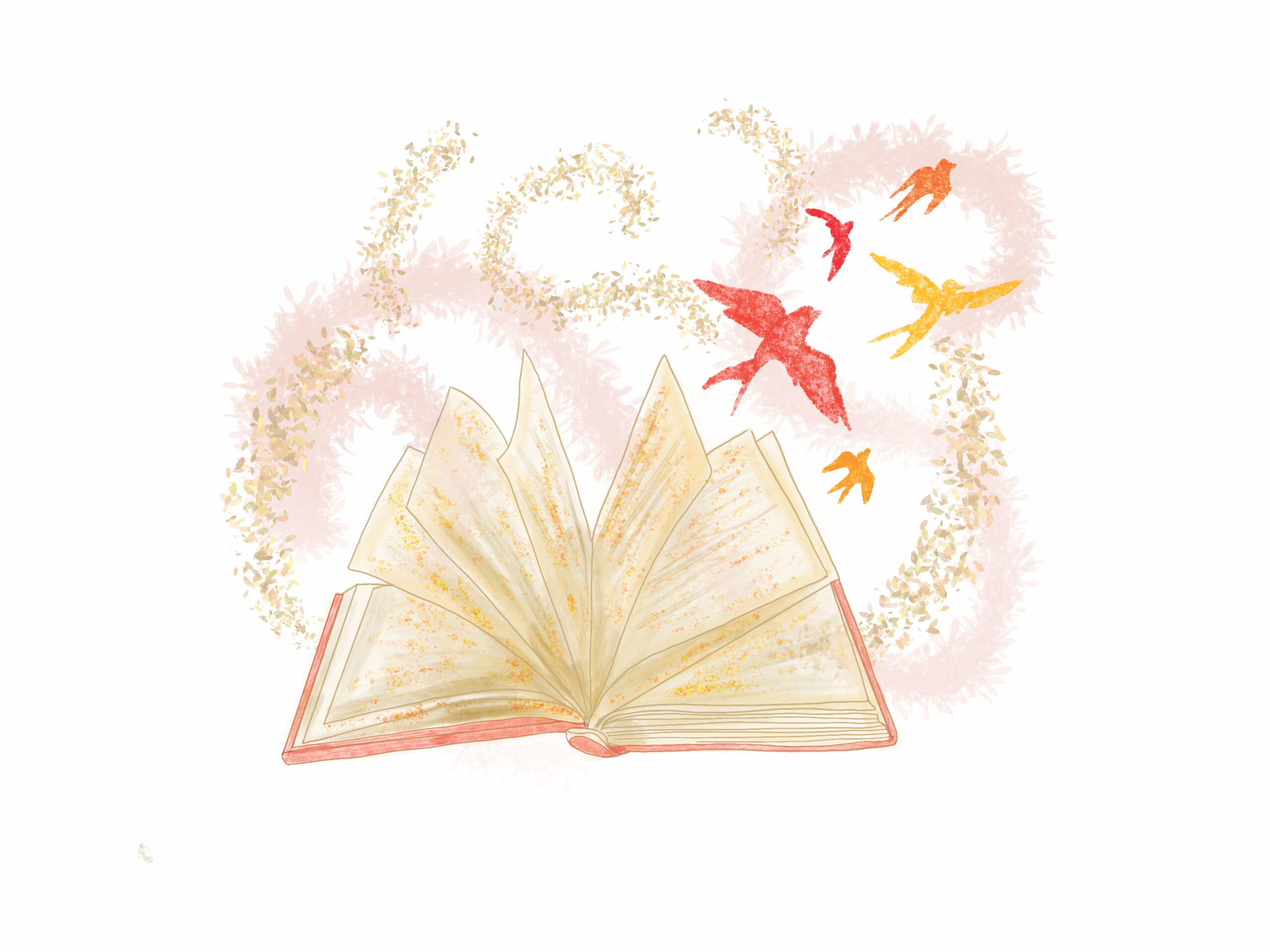Poetry takes flight with J. Drew Lanham at Burroughs reading
April 5, 2024
 Kaya Patel
Kaya PatelOn Tuesday, a crowd gathered in the Massachusetts Hall Faculty Room to hear the poetry of J. Drew Lanham at the latest installment of the Franklin Burroughs Environmental Writers Series. Lanham is currently a professor of wildlife ecology at Clemson University, his alma mater.
Professor of English Brock Clarke helped to organize Lanham’s visit to the College and lauded the breadth and appeal of Lanham’s writing.
“Every year we have a spring reading in the Franklin Burroughs Environmental Writers Series—named after former Bowdoin [Professor of English Emeritus] Franklin Burroughs. We look for writers who take on some aspect of environment in ways that are moving, or surprising, or provocative, or idiosyncratic, or funny, or all [of] the above,” he wrote in an email to the Orient. “Drew Lanham, this year’s visiting writer, fits into the ‘all of the above’ category.”
In addition to that of a poet, Lanham shares the titles of author, wildlife biologist, 2022 MacArthur Fellow and proud South Carolina native and resident. He originally majored in engineering for three and a half years before discovering his true academic passions—a change in trajectory that he likened to the flight of birds, for which he has a singular enthusiasm.
“Part of my affection with ornithology is the freedom that birds have to be who they are and what they are, and sort of follow what appears to be a free course,” he said.
Lanham’s fascination with birds and with the written word began when he was young. He was fascinated with flight as a child, and the notion of the freedom of flying wherever one wanted to go. Growing up on a farm in South Carolina, Lanham spent most of his time between his grandmother’s home and his parents’.
“My parents had lots of books and magazines because they were high school and junior high school science teachers,” he said. “I fell in love with birds, and I fell in love with reading, so I spent a lot of time in the B volume of the encyclopedia.”
The science of the natural world and the art of writing have always been intertwined for Lanham.
“I see them both as data gathering with the head and the heart,” he said. “In poetry oftentimes the heart leads, and in science the head comes first, but I think the heart still has a place in all of this, because most of us get into this work as ecologists because we love nature. We love something about it, some creature, some group of organisms, some place that we have fallen in love with or a process that intrigues us. So how we feel about something is often the first data that we gather.”
Clarke praised Lanham’s work for the bold connections it bridges between traditionally disparate subject matters.
“[Lanham’s] most recent book—‘Joy is the Justice We Give Ourselves’—is a multi-genre work about the connections between race and nature, between poetry and prose,” he wrote. “It is a bold, urgent, sui generis book, one I don’t think anyone else could write.”
At Tuesday’s event, Lanham shared reflections on his fondness for birds and ornithology in addition to sharing his emotional works connecting themes of societal issues to the natural world. He often referenced racism directly in tandem with his scientific study of birds, pushing the audience to carefully unpack his metaphors.
Audience member Troy Keller ’26 was struck by how Lanham’s work emphasized and elevated connections between ecology and society.
“Throughout the talk, through his poetry and his fascination with birds, he explores a lot of heavier social issues,” he said. “[One] idea he was talking about was native and invasive species and specific ecosystems, and how they’re treated as invasive, despite the fact that they’re making a conscious effort to make a home in a certain space, and make a community and society for themselves, and that, I assume, was meant to serve as a parallel of a much broader racial theme.”
Lanham’s reading explored various niches, including a poem focused on his definitions of joy.
“[Lanham] read through a few poems, but the one I enjoyed the most centered around the theme of joy, and the notions surrounding joy,” Keller said. “The major takeaway I had from the poem was that embedded in this idea of joy is a fundamental sense of leisure. It’s a luxury in itself to be able to experience joy.”
Visiting Assistant Professor of English Zahir Janmohamed found a novel understanding of nature in Lanham’s poetry.
“I was deeply moved by Lanham’s reading. I am not someone who thinks much about birds, but hearing him talk reminded me that if I care about the world—and I do—then I must care about birds,” he said. “Lanham’s writing urges us to make connections we seldom make, between identity and conservation and our increasingly fragile planet.”
Lanham enjoyed his visit to the College for its connection to Civil War hero and sixth College president Joshua Chamberlain, as well as his personal relationship with Burroughs, the Bowdoin professor emeritus for whom the Environmental Series is named.
“I’m just grateful,” Lanham said. “I always ask writers why they write, and ultimately, if we’re truthful, it’s because we’re compelled but also because we want to be read. And I’m so grateful for the opportunity to have a voice and thankful that people want to listen and read.”

Comments
Before submitting a comment, please review our comment policy. Some key points from the policy: